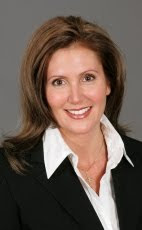 Notes from north of 49ºN
Notes from north of 49ºN
Helena Guergis is awash in controversy and is currently an independent MP from Simcoe-Grey in rural Ontario. I saw a Globe & Mail article that rubbed me the wrong way, but I initially couldn’t quite put my finger on why. Sarah Hampson’s snarky article, using “bonfire of the tiaras” in the title, makes some interesting points. Are “beauty pageants” incompatible with feminism? Sarah quips::
“But how could she mince around in high heels and then, in the next breath, work as a crisis volunteer for rape victims and march in Barrie’s Take Back the Night rally? Isn’t that a conflict of character?”
This paints a black and white picture, but Sarah’s last few paragraphs muddy the waters::
“The fact of the matter is that beauty pageants are an opportunity to get noticed; to be somebody at a young age; to get ahead. If you’re beautiful, what’s wrong with using it? Athletes use their physical prowess. Scholars flaunt their talents. Ambitious men (and women) boast about their accomplishments, easing them into every conversation.
That Ms. Palin and Ms. Guergis were both beauty contestants says three very simple things.
They’re ambitious; they’re opportunistic; and they’re vain. Which is why politics was so perfect for them, despite how their careers ended.”
First off, I’m not sure Palin or Guergis’ careers in politics have ended, so that bit may be premature. What struct me was the part about getting noticed and capitalizing on it.
“It seems to me that she’s pushing the boundaries of several stereotypes about what makes a woman attractive. In fact, according to The Independent, “she entered the contest in the hope of launching a modeling career that might fund her athletics training.” So the lady was just using the contest to meet her “real” desire: to be an Olympian. Nothing wrong with hustling the system, right?”
While it may be easy to brush aside pageant winners as less-than-credible women, do these attitudes do violence to the feminist project? What should one make out of women who aren’t the historical stereotype of pageant contestants, but are athletes or well-rounded individuals seeking to use the system to their advantage. On the one hand, when I saw that some Canadian women athletes were in a swimsuit calendar, I thought the objectification took something away from their “brand”, but in a market-based reality, does this “selling-out” afford them the chance to compete or pay expenses?
Is there a point where a woman goes from being exploited to being savvy, if she’s in on the “game”? So, if she’s know’s it’s all a game to get attention and to capitalize on it, is she engaging in a subversion of the hegemony? Or, is it always exploitation?
I must say I’m a bit uncomfortable with marginalization of people because of their past and I think a more nuanced discussion about what women “do” is in order. While I get the idea of a normative feminism with ideals, at the end of the day, for many it’s about creating opportunities in a market-based world.
Twitterversion:: Globe&Mail article discusses Guergis, Palin, beauty pageants, & politics. What does all of this say re: feminism in 2010? @Prof_K
Song:: Seal-‘It’s a Man’s Man’s Man’s World’


Comments 3
Deaf Indian Muslim Anarchist — April 13, 2010
(I do hope Sarah Palin's political career has ended. Please, PLEASE, let it be)
E. Thomas — April 14, 2010
Hustling the system or not, I think this is more about personal integrity. Beauty pageants have long been identified by feminists as objectification of women. A woman who competes in such an event, and then uses her notoriety to "do good" is trying to have it both ways. This may seem okay to some, but it shows a very flexible set of values.
Monica Hamburg — April 21, 2010
This is such a difficult and complex subject and certainly worthy of debate. A few brief thoughts on the subject: I very much dislike beauty pageants because I feel that it rewards only on the basis of looks, yet purports to do differently. On the other hand, I have no issue with women capitalizing on their looks when they have more to offer - since everyone else would capitalize on their looks when selling them (e.g. in articles, promotional material etc.)